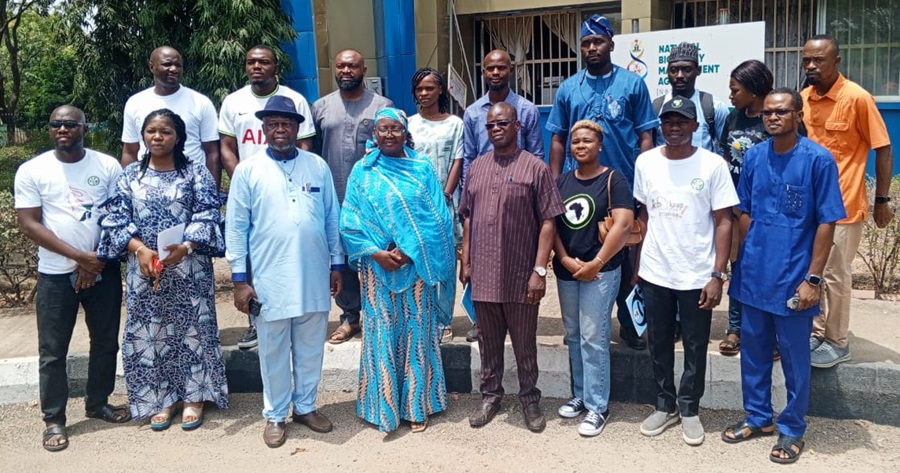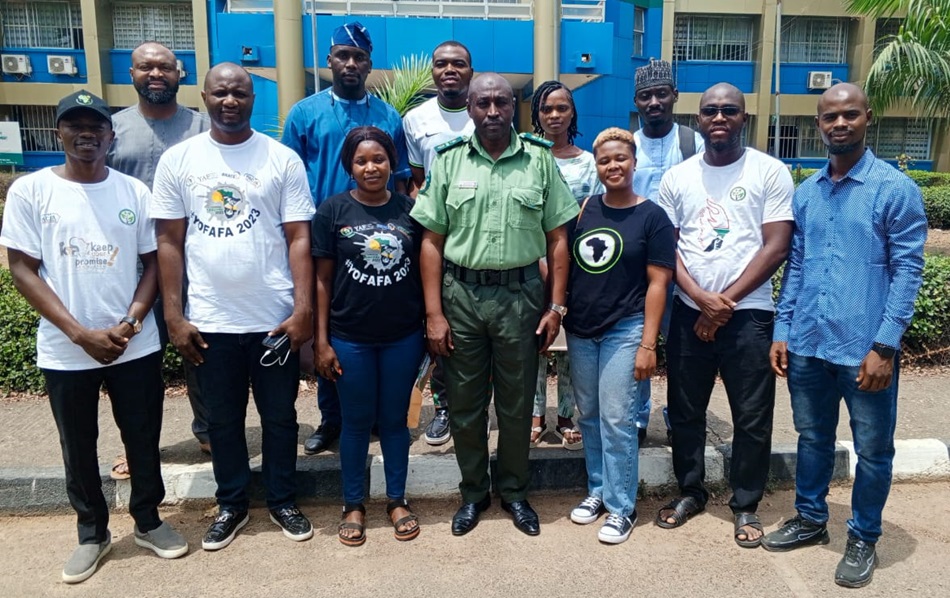
Written by Mariam Idris
In a concerted effort to promote environmental conservation and biosafety in Nigeria, a significant advocacy visit took place on March 7, 2024, to the National Park Service and the National Biosafety Management Agency in Abuja.
This visit marked a crucial step towards fostering collaboration, raising awareness, and discussing pertinent issues related to the protection of natural resources and the management of biosafety concerns.
The Climate and Sustainable Development Network (CSDevNet) recognises the importance of collaborative initiatives in achieving sustainable biodiversity conservation.
National Park Service
The day began with a visit to the headquarters of the National Park Service, a vital institution responsible for safeguarding Nigeria’s diverse ecosystems and preserving its rich biodiversity.
The delegation, comprising environmentalists, representatives from non-governmental organisations, and concerned citizens, engaged in productive discussions with the leadership of the National Park Service.
CSDevNet representative: Mr. Umoru Ameh briefed Mr. Kabiru Mohammed (Ph.D.), Acting Conservator General on CSDevNet’s activities and ongoing projects related to biodiversity conservation education and awareness since their last visit.
He also expressed the organisation’s desire to collaborate with the National Park Service on these initiatives.
During the visit, CSDevNet’s Programme Officer Paul Gwumapan emphasised the importance of preserving the nation’s parks and wildlife sanctuaries as essential components of the country’s natural heritage.
They discussed the need for increased funding, improved infrastructure, and enhanced security measures to protect these areas from illegal activities such as poaching and deforestation.
Furthermore, CSDevNet advocated for community involvement in conservation efforts, stressing the significance of educating local populations about the value of wildlife and ecosystems.
Collaborative initiatives between the National Park Service and local communities were proposed to foster a sense of shared responsibility and sustainable resource management.
Deputy Conservator of Parks Danjuma Magaji said, “Now poachers use more sophisticated weapons which is a challenged for National Park Service to manage the incidences of poaching”.
He said ” You must carry the local community along and make them take ownership to achieve the goal of biodiversity conservation”.
“We all have a responsibly and a role to play in creating awareness on biodiversity conservation.” He added.

National Biosafety Management Agency
Following the visit to the National Park Service, the advocacy group proceeded to the National Biosafety Management Agency, a regulatory body responsible for ensuring the safe handling, transfer, and use of genetically modified organisms (GMOs) in Nigeria.
The discussions centered around the importance of robust biosafety measures and the need for public awareness regarding the potential risks and benefits of GMOs.
The delegation from CSDevNet engaged in a dialogue with experts from the National Biosafety Management Agency, addressing concerns related to the environmental and health implications of genetically modified crops.
They advocated for transparent communication with the public, emphasising the importance of disseminating accurate information.
Mrs. Scholastica Bello, Acting Director of Planning, Research, and Statistics, appreciated CSDevNet for their effort in promoting sustainable use of biodiversity.
She highlighted some of the challenges the agency faces, including: manpower limitations, lack of adequate support, inter-agency conflicts, and limited funding, among others.
She added that “it is a trade war between the biochemical and biosafety industries.” Indicating that modern technology helps to improve productivity and the sustainability of biodiversity.
In conclusion, she stated that the agency is focused on the agency’s role in promoting biodiversity conservation through its three key mandates: conservation, sustainable use, and equitable sharing.
